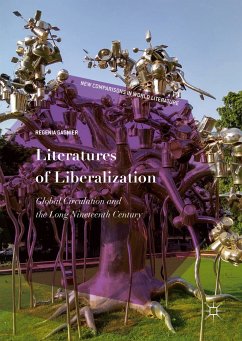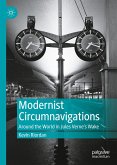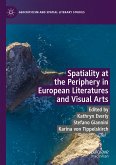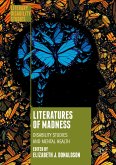Dieser Download kann aus rechtlichen Gründen nur mit Rechnungsadresse in A, B, BG, CY, CZ, D, DK, EW, E, FIN, F, GR, HR, H, IRL, I, LT, L, LR, M, NL, PL, P, R, S, SLO, SK ausgeliefert werden.
"There can be no doubt that Gagnier articulates some important new questions that will further nineteenth-century comparative studies. Readers of world literature and comparative literature, literary or book historians on transculturation and globalisation, and researchers with an interest in how the long nineteenth century can be viewed as globally interactive (intertextually, contextually, and paratextually) will profit immensely from this book." (Yuejie Liu, BAVS Newsletter, Vol. 20 (1), 2020)









